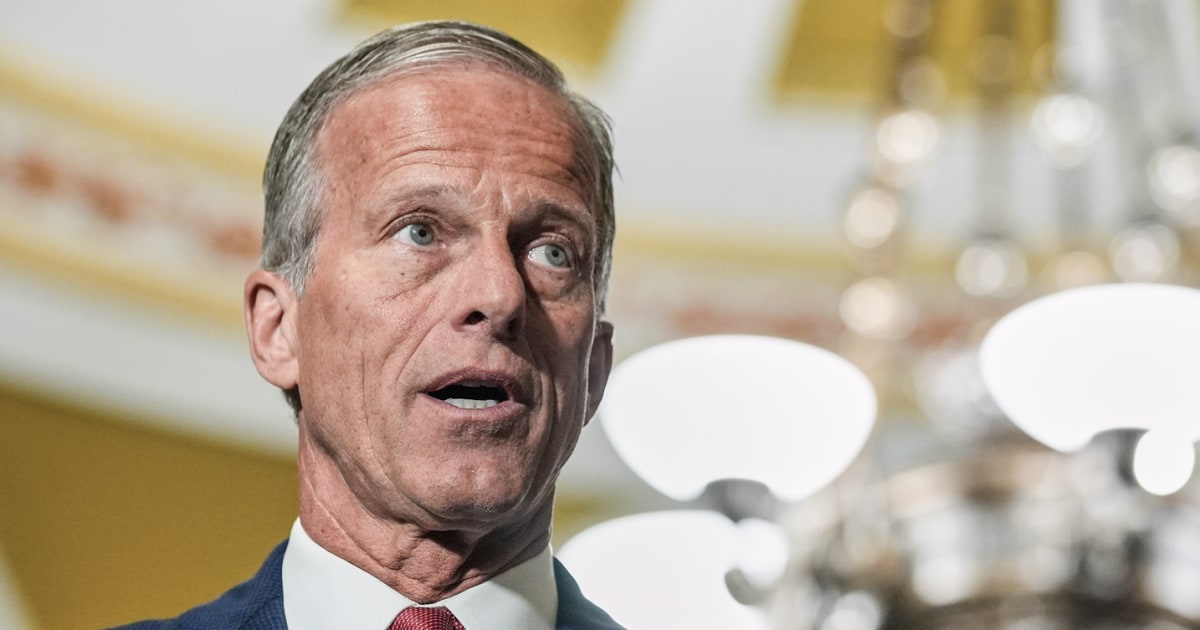WASHINGTON — Republicans triggered the “nuclear option” to change the rules of the Senate on a party-line basis Thursday, a move that will allow them to speed up confirmation of President Donald Trump’s nominees for key executive branch positions.
The vote was 53-45 to establish a new rule that allows the Senate to confirm an unlimited number of nominees en bloc, rather than process each one individually.
The rule applies to executive branch nominees subject to two hours of Senate debate, including subcabinet picks and ambassadors. It will not affect judicial nominations. Republicans say they’ll allow their own senators to object to individual nominees in any given block, but the rule will strip away the power of the minority party to do the same thing.
Senate Majority Leader John Thune, R-S.D., initiated the process by bringing up a package of 48 Trump nominees, which under longstanding rules has been subject to the 60-vote threshold. The vote to advance them failed due to Democratic opposition. Then, Thune sought to reconsider and Republicans subsequently voted to overrule the chair, setting a precedent and establishing the new rule.
Thune had telegraphed the move for weeks, accusing Democrats of creating an “untenable situation” with historic obstruction of Trump’s nominees. The vote was held up for hours Thursday as the two parties engaged in last-ditch negotiations to strike a deal to avoid a rules change.
But they failed. And Republicans chose to proceed.
“It’s time to move. Time to quit stalling. Time to vote. Time to fix this place,” Thune said in an impassioned floor speech, accusing Democrats of stalling and dragging out negotiations. “This is a broken process, folks. That’s an embarrassment.”
Thursday’s vote sets up a fast track for confirmation of that initial bloc of 48 Trump nominees, including former Rep. Brandon Williams, R-N.Y., to be undersecretary for nuclear security, as well as Kimberly Guilfoyle and Callista Gingrich to be ambassadors to Greece and Switzerland, respectively.
Senate Minority Leader Chuck Schumer, D-N.Y., said his party was reacting appropriately to Trump’s “historically bad nominees,” a trend he predicted would worsen with the GOP’s rule change.
“This move by Republicans was not so much about ending obstruction, as they claim; rather, it was another act of genuflection to the executive branch … to give Donald Trump more power and to rubber-stamp whomever he wants whenever he wants them, no questions asked,” he said.
He also predicted that Republicans would come to regret it.
“This is a sad, regrettable day for the Senate,” he said. “And I believe it won’t take very long for Republicans to wish they had not pushed the chamber further down this awful road.”
The vote Thursday makes a far-reaching change to the rules that will tear down hurdles for Trump — and future presidents — to rapidly push their nominees through the Senate.
Moments later, Senate Republicans used their modified rule to formally advance the package of 48 nominees Thursday, with the goal of confirming them all next week.
The tool they used is known as the nuclear option because senators typically prefer to avoid it. But over the last decade and a half, it has been used by both parties to erode the powers of the Senate minority — by nixing the 60-vote threshold for confirming judges and cutting debate time for some nominees.
Although nominations are the prerogative of the Senate, House Republicans have watched the battle with interest and pushed for faster confirmation of Trump’s nominees.
Sen. Katie Britt, R-Ala., gave a presentation on the rules change proposal Wednesday to a group of House Republicans, according to a source with direct knowledge of the matter.
Sen. Brian Schatz, D-Hawaii, who had spearheaded an effort to find an agreement that would avoid the nuclear option, said there wasn’t total agreement to proceed with it.
But he said he was happy to have tried.
“We don’t have unanimous consent, we do not have unanimity,” he said Thursday before the vote. “It’s a damn shame, and maybe this exercise builds a little muscle memory for at least exploring how to have a bipartisan negotiation. So maybe there’s some silver lining to this.”
Source link
